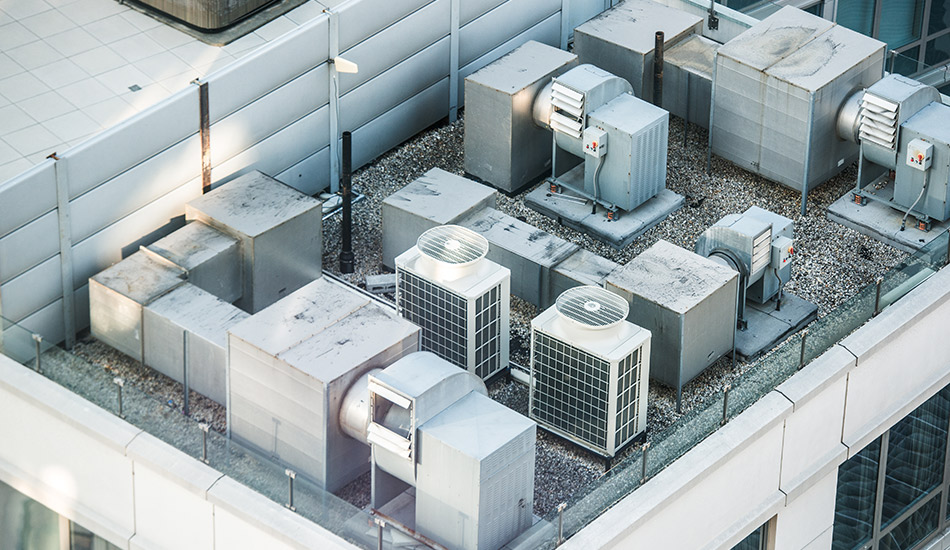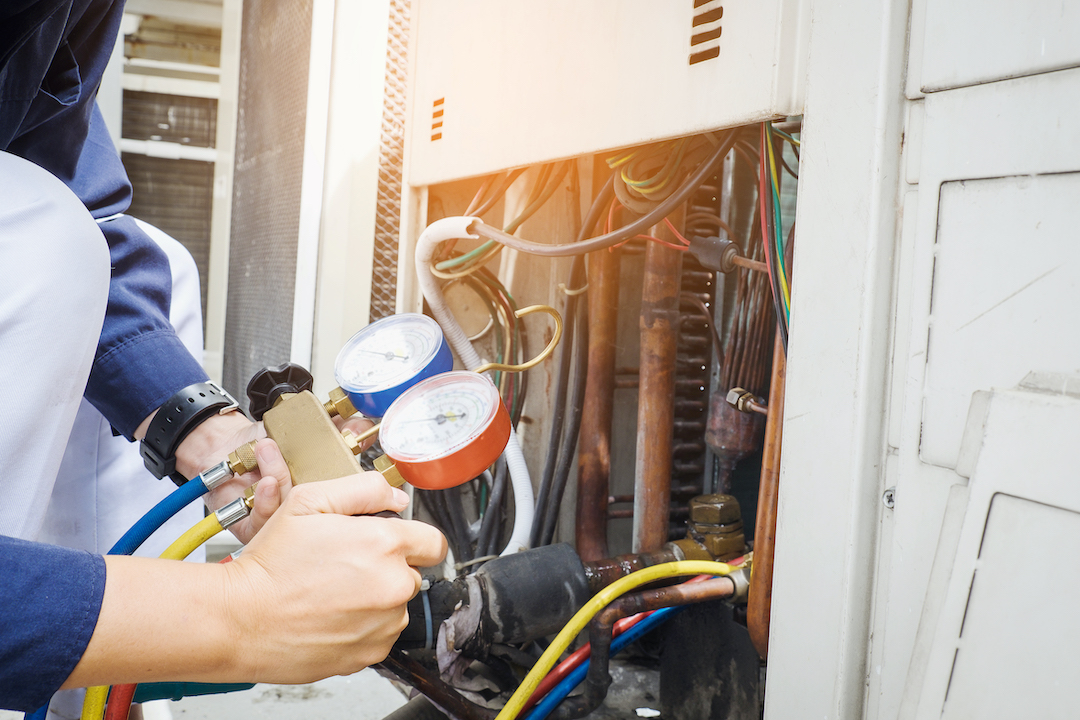What Makes a Successful heat pump installation ooltewah tn
What Makes a Successful heat pump installation ooltewah tn
Blog Article
Picking In Between a Heatpump and Furnace: Trick Factors To Consider for Your Heating And Cooling Requirements
When evaluating home heating alternatives for heating and cooling needs, the choice between a heatpump and a heating system can be complex. Each system provides unique benefits tailored to particular climates and energy effectiveness goals. Understanding these differences is essential for making an educated choice. Trick elements such as installment prices and environmental impact further complicate the option procedure. Which alternative really lines up with one's convenience and sustainability preferences? The adhering to sections will check out these factors to consider carefully.
Recognizing Warmth Pumps: Just How They Work and Their Advantages
While lots of property owners think about various home heating choices, recognizing exactly how warmth pumps function and their benefits can greatly influence their choice. Warm pumps operate by transferring heat instead of creating it. In the winter season, they extract warm from the outside air or ground and transfer it indoors, while in the summer season, they reverse this process, cooling down the home by eliminating heat outside. This dual capability makes them flexible for year-round environment control.One of the primary advantages of heatpump is their energy effectiveness. They use significantly less power contrasted to conventional heating unit, possibly resulting in reduced energy expenses (furnace replacement). Additionally, warmth pumps have a smaller carbon impact, making them an eco-friendly option. They additionally call for much less upkeep than traditional systems, adding to lasting cost savings. On the whole, understanding the auto mechanics and advantages of warmth pumps can assist house owners make notified choices concerning their home heating and cooling down demands
Discovering Heating Systems: Kinds, Procedure, and Benefits
Heating systems are available in different types, including gas, electrical, and oil models, each with unique operational mechanisms. Recognizing these distinctions is vital, as they impact efficiency and heating efficiency. In addition, heating systems provide various benefits, such as regular warm outcome and dependability in colder environments.
Kinds of Heating systems
Furnace can vary considerably in layout and procedure, with heaters being a prominent selection among home owners. There are several kinds of furnaces, each utilizing various fuel sources and innovations. Gas furnaces prevail, leveraging gas to create heat efficiently. Electric heaters, on the various other hand, make use of electrical resistance to create heat, usually favored for their simple installation. Oil heating systems, while much less typical, are efficient in areas with restricted gas access (heat pump replacement ooltewah tn). Additionally, condensing heaters maximize power performance by reusing and catching exhaust gases. Each type operates with a system of heat exchangers and ductwork to disperse warm air throughout a home. Comprehending the distinctions in between these furnace types is important for educated HVAC decisions
Advantages of Heaters
For home owners looking for dependable warmth throughout cold months, the benefits of furnaces are substantial. Furnaces give regular home heating, making certain even temperatures throughout the home. They are specifically reliable in extreme cold, often exceeding warm pumps in freezing problems. Various kinds, consisting of gas, electrical, and oil heating systems, provide flexibility to meet diverse requirements and preferences.Furnaces likewise have a tendency to have reduced first setup expenses compared to heatpump, making them a much more obtainable choice for lots of. Their durable layout adds to a much longer life-span, with numerous units lasting over 15 years with correct maintenance. Furthermore, modern heating systems are typically furnished with innovative modern technology for enhanced performance, which can result in minimized power bills. On the whole, furnaces stay a reliable selection for efficient home heating.

Energy Efficiency: Comparing Heat Pumps and Furnaces
When comparing power performance between heatpump and heating systems, the Seasonal Energy Effectiveness Proportion (SEER) plays an important duty in determining efficiency. In addition, a functional price evaluation discloses the lasting financial ramifications of each system. Understanding these elements can assist homeowners in making informed choices concerning their heating solutions.
Seasonal Energy Effectiveness Ratio
Energy efficiency plays an essential function in the decision-making process between heatpump and heaters, particularly when considering the Seasonal Energy Performance Ratio (SEER) This metric measures the cooling performance of warmth pumps over an entire air conditioning period, supplying a standard means to evaluate performance. Higher SEER rankings suggest higher energy effectiveness, translating to lower power intake and reduced utility bills. On the other hand, furnaces are commonly analyzed utilizing the Yearly Fuel Utilization Efficiency (AFUE) score, which shows heating effectiveness. When contrasting these 2 systems, house owners must prioritize SEER rankings for warm pumps, as they straight impact overall power financial savings and ecological sustainability. A detailed understanding of SEER can especially influence the long-term complete satisfaction and cost-effectiveness of the chosen cooling and heating remedy.
Operational Price Evaluation
Recognizing the functional prices related to warm pumps and heating systems is vital for homeowners evaluating their alternatives. Heatpump usually offer greater power performance, converting electric energy right into warm with minimal waste. This causes lower month-to-month utility costs, especially in modest climates. On the other hand, conventional furnaces, specifically gas designs, may have lower upfront prices yet can incur More about the author higher functional costs with time because of fuel prices and efficiency ratings.Moreover, heatpump can function as both heating and cooling systems, possibly reducing the demand for different cooling and heating units. While initial financial investments for warm pumps may be higher, their long-lasting financial savings in power performance can make them a more economical option for several homes. Careful analysis of neighborhood power prices is important to identify the most effective alternative.
Setup Expenses: What to Expect for each and every Heater
Installment expenses for heating unit can vary considerably in between warmth pumps and furnaces, affecting homeowners' choices. Warm pumps usually have greater upfront installment expenses, normally ranging from $3,500 to $8,000, depending upon the system size and complexity of installment. This consists of the outdoor system, interior handling system, and required ductwork modifications. Alternatively, heaters often tend to have lower initial prices, balancing between $2,500 and $6,000, which can article source be appealing for budget-conscious property owners. However, installment expenditures can enhance if extensive ductwork is required.Moreover, the selection of gas type for heaters-- gas, lp, or electric-- can additionally influence setup costs. While heatpump provide power effectiveness, their initial financial investment might deter some buyers. Eventually, reviewing installment prices along with long-lasting cost savings and effectiveness will certainly aid house owners in making notified decisions concerning their heating unit.
Environment Factors To Consider: Which System Carries Out Better in Your Location
How do environment conditions influence the efficiency of furnace? The efficiency of heatpump and heaters can differ greatly relying on the neighborhood climate. In moderate climates, heat pumps stand out by efficiently moving heat from the outside air, making them an energy-saving choice. Nonetheless, their effectiveness diminishes in exceptionally chilly temperature levels, where they might struggle to remove adequate warm. Alternatively, heaters, specifically gas models, give regular and trustworthy heat no matter outdoor conditions, making them preferable in cooler regions.In areas that experience milder winter seasons, heat pumps can operate properly year-round, offering both home heating and cooling. In comparison, areas with extreme winters months frequently gain from the effectiveness of heating systems. Eventually, comprehending the local environment is essential when determining in between a Learn More heatpump and a heating system, as it directly affects their operational efficiency and total efficiency.
Upkeep Needs: Long-Term Look After Heat Pumps vs. Furnaces
While both heat pumps and heating systems call for normal upkeep to assure peak performance, their specific demands and care regimens vary significantly. Heaters typically need much less constant focus, with annual examinations being sufficient to inspect for gas leaks, tidy filters, and assess general capability. Their simpler design frequently enables for uncomplicated repairs.In contrast, warm pumps require biannual upkeep as a result of their twin function in heating & cooling. This consists of cleaning coils, examining cooling agent degrees, and ensuring that both the indoor and outdoor devices work at their ideal. In addition, heatpump maintenance commonly involves more complex parts, making professional servicing essential.Neglecting maintenance can cause lessened effectiveness and raised power expenses for both systems. Ultimately, homeowners must consider these long-term treatment needs when choosing between a heatpump and a heating system, as aggressive upkeep can expand the lifespan and efficiency of either system considerably.
Ecological Effect: Selecting a Sustainable Heating Choice
The environmental effect of heating unit is an essential evaluation for property owners seeking lasting choices. Heatpump are normally more energy-efficient than typical heating systems, as they move heat instead of generate it, considerably lowering carbon exhausts. By using eco-friendly power resources, such as air-source or geothermal heatpump, house owners can additionally minimize their environmental footprint.On the various other hand, gas heaters send out greenhouse gases and add to air contamination, though they typically supply higher warm result. Innovations in modern technology have actually led to the development of high-efficiency heaters that decrease emissions.Ultimately, choosing a heating system entails evaluating effectiveness versus environmental influence. Homeowners are urged to mirror on regional energy sources and motivations for eco-friendly systems, making certain a choice that straightens with both personal convenience and environmental duty. The decision impacts not just prompt comfort yet likewise long-term sustainability and environmental wellness.
Regularly Asked Concerns
How Lengthy Do Warmth Pumps and Furnaces Commonly Last?
The life expectancy of heatpump usually ranges from 15 to twenty years, while heaters can last between 15 to 30 years. Routine upkeep substantially affects their long life and effectiveness in providing home heating solutions.
Can I Utilize a Warmth Pump in Extremely Cold Climates?
Warmth pumps can run in incredibly cool environments, however their efficiency reduces as temperatures decrease. In such problems, supplemental heating resources might be necessary to keep comfy indoor temperature levels and guarantee peak performance.

What Is the Noise Level of Warmth Pumps Versus Furnaces?
The sound degrees of warm pumps and furnaces differ substantially. Typically, warm pumps operate even more quietly than typical heaters, making them more effective for those delicate to appear, while heating systems may produce louder functional noises throughout home heating cycles.
Are Heat Pumps Suitable for Both Heating & Cooling?
Heatpump are without a doubt appropriate for both home heating and air conditioning (heat pump replacement ooltewah tn). They work by transferring warm, offering effective temperature level control year-round, making them a flexible selection for house owners seeking an all-in-one cooling and heating option
What Size Heating Unit Do I Need for My Home?
Establishing the suitable dimension heating unit for a home calls for evaluating variables such as square video footage, insulation top quality, local environment, and the home's layout. Consulting an expert can guarantee a precise assessment and optimal comfort. Heat pumps usually supply greater energy effectiveness, converting electric energy right into warmth with very little waste. In modest environments, heat pumps stand out by effectively moving heat from the outdoors air, making them an energy-saving option. On the other hand, heaters, especially gas versions, provide reliable and consistent warm no matter of exterior problems, making them preferable in cooler regions.In areas that experience milder wintertimes, warm pumps can run successfully year-round, providing both heating and cooling. Heat pumps are usually more energy-efficient than conventional heating systems, as they transfer warmth instead than create it, significantly minimizing carbon emissions. By using renewable energy resources, such as geothermal or air-source warm pumps, home owners can even more minimize their environmental footprint.On the other hand, natural gas heaters emit greenhouse gases and contribute to air contamination, though they usually give greater warm outcome.
Report this page